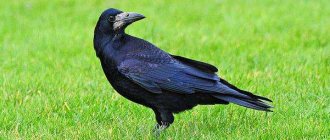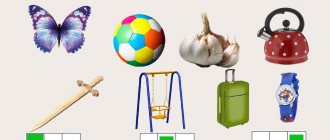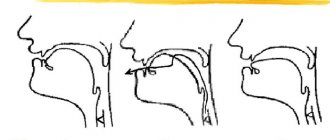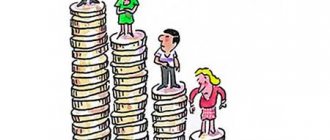Sound automation [L']
- Speech therapist.No
- Automation of sounds
- Automation of the sound L'
The soft sound [L`] (or [L]) is usually easy to make by imitation. When pronouncing syllables, it is necessary to observe the rule of duration.
The sound [L`] (or [L]) is colored green (soft consonant). Vowel sounds are colored red.
1) Pronounce (read) syllables with the sound L__
Syllables are pronounced for a long time
Sample: AL__, OL__, UL__, EUL__, EL__, IL__, EL__, YOL__, YUL__, YAL__
2) Pronounce (read) words with the sound [L'] at the end
Sample: dal__, salt__
|
|
|
|
|
3) Pronounce (read) words with the sound [L'] in the middle
Sample: bu-di-l__nik
|
|
|
|
4) Pronounce (read) the syllables L__YA, L__Yo, L__YU, LI__I, L__U
5) Pronounce (read) words with the sound [L'] at the beginning
Sample: L__yo-nya
|
|
|
|
|
6) Pronounce (read) words with the sound [L'] in the middle
Sample: green
|
|
|
|
7) Pronounce (read) words with the second sound [L']
Sample: next
|
|
|
|
 Pronounce (read) phrases
Pronounce (read) phrases
- Green frog.
- Heavy snowstorm.
- Long ribbon.
- A little boy.
- Sore finger.
- Maple Leaf.
- Far forest.
- Raspberry jelly.
- Forest Glade.
- Curious reader.
- Lightweight watering can.
- Little lion cub.
- Heavy rain.
- Pistol bullet.
- White coat.
- Lemon lollipops.
- Favorite tulips.
- Light blanket.
- Clay dish.
- Glass greenhouse.
- Fox cage.
- Small chair.
- Poplar fluff.
- Lublinskaya street.
9) Conjugate sentences
- I was flying on an airplane.
- I sculpted a frog from clay.
- I'm sawing linden.
- I water the lilies from a watering can.
Sample:
- I climbed a palm tree.
- You climbed a palm tree.
- He (she) climbed a palm tree.
- We climbed a palm tree.
- You were climbing a palm tree.
- They climbed a palm tree.
10) Say (read) sentences
Sample: Lyuda little
- Lena has a watering can.
- Galya and Olya were running.
- Lyova and Kolya were sitting.
- Kolya is stronger than Tolya.
- Lenya climbed the linden tree.
- Far, far away the bell is ringing.
- Olya waters the lemon.
- Lida loves lemonade.
- Lenya sculpts from plasticine.
- Little Olya is lying in a stroller.
- Lisa's left knee hurts.
- Valya and Galya saw swans.
- The plane flies over forests and fields.
- Little foxes ran after the fox.
- Olya waters the sticky poplar with a watering can.
- The boys ate vanilla waffles.
11) Pronounce (read) pure sayings
- Valenka’s felt boots are drying on the heap.
- We caught burbot in the shallows.
- They aimed at the target and hit the stump.
- They poured water, poured it, poured it, poured it, poured it, poured it, bathed the baby.
- They ate, ate, ate, ate, but didn’t finish the raspberries.
- Sawing, pricking, pricking, sawing
- Phil with Kolya, Kolya with Phil.
12) Pronounce (read) and retell the text
Fox and dogs
A fox ran across the field. The dogs saw the fox and chased after it. The fox rushed into the forest. The dogs caught up with her, but she went into a hole. The fox sits in a hole and says:
- Ears, ears, what were you doing? “We listened and listened so that the dogs wouldn’t eat the little fox.” - Legs, legs, what were you doing? “We ran and ran so that the dogs wouldn’t catch the little fox.” - Little eyes, little eyes, what were you doing? “We watched and made sure that the dogs didn’t eat the little fox.” - What were you doing, tail? - I clung to stumps and bushes. - Oh, that's what you are! Here you dogs, eat my tail.
The fox stuck out its tail. And the dogs grabbed and pulled out the fox by the tail.
13) Pronounce (read) and memorize poems.
Snail
One summer we saw a snail at the gate. The spruce ate a short path, ate, and covered it in a week.
Poplar fluff
Poplar fluff flies over the viburnum, over the raspberries. Willows, maples, firs, spruces, oaks and lindens turned white.
Automation of the L sound at the end of words:
- glass, pencil case, jackal, barbecue, dagger, ox, stake, table;
- goal, football, shot, basketball, chair, hall, grin, pedestal.
You can reinforce the sound L by naming or repeating words in pictures, or you can make classes even more interesting and varied. To do this, we offer you options for games and exercises. These games will help not only automate the sound in words, but also develop the grammatical structure of speech, memory, attention, and thinking of your baby.
Lesson summary on the topic “Differentiation of sounds L-L”
Differentiation of sounds [l] – [l']
Correctional educational goal:
- Strengthen the skills of distinguishing by ear the sounds [L] - [L'] and using them correctly in speech.
- Strengthen the ability to use models when analyzing the articulatory structure, improve the skills of conducting sound analysis using the example of the word fork.
- To develop practical skills in forming relative adjectives from nouns denoting the names of fruits and berries, to consolidate the ability to coordinate nouns with adjectives, cardinal numbers with nouns.
- Expand and activate vocabulary on the topics “Fruits”, “Berry”, “Tableware”.
- Develop practical skills in writing proposals, negotiating sentences based on clarity.
Corrective and developmental goal:
- Develop gross and fine motor skills, long speech exhalation, phonemic perception, attention.
Corrective educational goal:
- Form a culture of behavior at the table, cultivate kindness, responsiveness, and the ability to see the good and positive in the actions of comrades.
Equipment:
picture material (frog, table, bowl of salad, fruit, berries); handout picture material (apple, banana, orange, currant, strawberry, lemon, raspberry, pear, models of spoons and forks), cards for analyzing the articulation of sounds [L] - [L'].
Organizing time.
Forming a culture of behavior at the table, creating a positive attitude towards learning.
Speech therapist.
Guys, Bill the Frog invited us to visit.
Let's remember how to behave at the table.
On the frog's birthday, her friends gathered. We frolicked, played, and then began to have lunch. They forgot only one thing: the guests did not wash their hands. Treats at the tables were taken with dirty hands. G. Shalaeva
Guys, name the first rule of behavior at the table.
Children.
Wash your hands before eating.
The child who names the rule goes to his/her table.
Speech therapist.
Now listen to what happened to my friend the stork.
The stork at the table was sad: He decided to eat the soup with a fork, But he couldn’t do it - Nothing worked! G. Shalaeva
Formulate the second rule of behavior at the table.
Children.
Use cutlery correctly.
Speech therapist.
The little bear was chewing bread and dropping bread crumbs. He spoke with his mouth full - What? No one could understand, Then he took up the compote - The table doused his stomach too! G. Shalaeva
- Name the third rule.
Children.
Eat slowly and carefully, do not indulge at the table.
Speech therapist.
And the last important rule: thank the hosts after dinner.
Report the topic of the lesson.
Isolating sounds [L] - [L'] from a number of words.
Speech therapist.
Listen to the words, what sound occurs in each word.
Table, chair, spoon, fork, plate.
Children.
Sound [L].
Speech therapist.
Table, chair, food, drink, saucepan.
Children
. Sound [L'].
Speech therapist.
Today we will play with these sounds.
Development of speech exhalation, development of auditory attention.
Game “Steamboat - droplet”.
Speech therapist.
If I say the word steamboat, you begin to hum for a long time, like a steamboat: inhale, as you exhale - [LLLLLLLLLLLL].
If I say the word droplet
, then you will pronounce the sound [L'] briefly, as if water is dripping from a tap: inhale, as you exhale - [L' - L' - L' - L'].
Updating children's existing knowledge.
Characteristics of sounds by articulatory and acoustic characteristics.
Speech therapist.
What do our teeth, tongue, lips do when we pronounce the sound [L], the sound [L']?
Children analyze articulation using model cards.
Speech therapist.
What else can we say about these sounds?
Children.
These sounds are consonants, voiced, but the sound [L] is hard, and the sound [L'] is soft.
Development of phonemic awareness, improvement of general motor skills.
Game “Pick it up and slam it down”.
Speech therapist.
Guys, please stand up and listen. If I say a word with the sound [L] - clap your hands, if I say a word with the sound [L'] - raise your hands.
Pan, spoon, plate, butter dish, milk jug, salad bowl, fork, saucer, glass, bread box.
Development of fine motor skills.
Finger gymnastics “Washing hands”.
Speech therapist.
Guys, you said that you need to wash your hands before eating. Get your hands ready.
Our Mila washed her hands. (“We wash our hands.”)
Mila did not spare soap. Mila washed every finger. Our Mila is great!
(Use your thumb to “wash” each finger in a circular motion).
Coordination of cardinal numerals with nouns, development of auditory-speech memory, phonemic perception, pronunciation of sounds [L] - [L'] in syllables.
Game “Count the objects”.
Speech therapist.
Bill the Frog brought you cutlery (models of spoons and forks), but he doesn’t know how to count yet. Count how many cutlery is on your table.
Children.
One spoon, two spoons, three spoons, four spoons, five spoons. One fork, two forks, three forks, four forks, five forks.
Speech therapist.
As many models as there are in front of you, say the syllable LA, LA, OL, OL, PLA, PLYa so many times.
Children.
LA-LA-LA-LA-LA. LA LA LA LA LA. OL-OL-OL-OL-OL. OL-OL-OL-OL-OL. PLA-PLA-PLA-PLA-PLA. PLAH-PLAH-PLAH-PLAH-PLAH.
Sound, syllabic analysis.
Speech therapist.
Determine the number of syllables in the word fork.
Children.
Two.
Speech therapist.
Name the first syllable (vil), the second syllable (ka). How many sounds are in the first syllable? Three. List them. Describe these sounds. ([B'], [I], [L]). ([V'] - consonant, voiced, soft; [I] - vowel; [L] - consonant, voiced, hard; how many sounds are in the second syllable? Two. ([K], [A]). ([K] – consonant, deaf, hard; [A] – vowel).
One of the children conducts a full sound analysis of the word.
Development of auditory attention, phonemic perception, clarification and expansion of the vocabulary on the topic “Utensils”, pronunciation of sounds [L] - [L'] in words.
Ball game “Set the table”.
Speech therapist.
Children, let's help Bill the frog set the table, he decided to take only those items whose names contain the sounds [L] and [L']. I throw you a ball and name a word, if it contains the sounds [L] - [L'], you say: “I hear.” If the word does not contain the sounds that we are playing with today, answer: “I don’t hear.”
Cup, glass, spoon, frying pan, salad bowl, fork, jug, saucer, sugar bowl, glass, decanter, butter dish, creamer.
Children.
Let's take a salad bowl, spoon, fork, saucer, glass, butter dish, creamer.
Clarification and expansion of the dictionary on the topic “Fruits”, “Berry”, formation of relative adjectives from nouns denoting the names of fruits and berries, agreement of adjectives with nouns.
Game “Make a salad”.
Speech therapist.
Bill the Frog decided to make a fruit and berry salad, let's help him. Select only those pictures whose names contain the sounds [L], [L'].
Each child is given pictures of fruits and berries.
Children.
Let's prepare a salad of strawberries and raspberries, oranges, apples, lemons.
Speech therapist.
Guys, what if you make juice from these fruits and berries? What juice will you get from apples?
Children.
Apple juice – apple juice. Strawberry juice – strawberry. Raspberry juice – raspberry. Orange juice – orange juice. Juice from lemons – lemon.
Pronunciation of sounds [L] - [L'] in a sentence. Negotiating sentences based on the picture presented, pronouncing the resulting sentences.
Game “Finish the sentence”.
Speech therapist.
Today I invited the guys to visit (shows a picture of a frog)…
Children.
Frog Bill. Today the kids were invited to visit by Bill the Frog.
Speech therapist.
The guys washed their hands and sat down at... (picture – table).
Children.
Table. The guys washed their hands and sat down at the table.
Speech therapist.
Bill the Frog treated the children to fruit... (picture of a salad bowl with salad).
Children.
Salad. Bill the Frog treated the children to fruit salad.
Speech therapist.
He prepared a salad from ... (pictures - berries, fruits).
Children.
Strawberries, oranges, raspberries, apples, lemons. He prepared a salad from strawberries, raspberries, oranges, apples, and lemons.
Speech therapist.
When leaving, the guys thanked... (picture of a frog).
Children.
Bill the Frog. As they left, the children thanked Bill the Frog.
Summary of the lesson.
Speech therapist.
Guys, today we visited the little frog. We remembered how to behave at the table, played with the sounds [L] and [L']. You did a very good job, who would you personally like to praise? Leave your tables and say kind words to each other.
Lesson summary on the topic: “Differentiation of sounds l-l. Senior preschool age."
Prepared by: Votrina Vera LP-41






